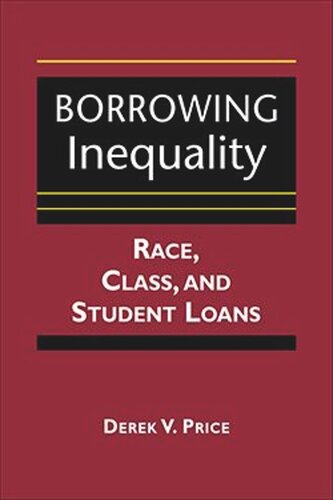

Most ebook files are in PDF format, so you can easily read them using various software such as Foxit Reader or directly on the Google Chrome browser.
Some ebook files are released by publishers in other formats such as .awz, .mobi, .epub, .fb2, etc. You may need to install specific software to read these formats on mobile/PC, such as Calibre.
Please read the tutorial at this link: https://ebookbell.com/faq
We offer FREE conversion to the popular formats you request; however, this may take some time. Therefore, right after payment, please email us, and we will try to provide the service as quickly as possible.
For some exceptional file formats or broken links (if any), please refrain from opening any disputes. Instead, email us first, and we will try to assist within a maximum of 6 hours.
EbookBell Team

4.1
50 reviewsAs the cost of higher education continues to rise, students increasingly rely on borrowing to pay for college. But is the result the improved socioeconomic position that they anticipate? Borrowing Inequality explores the real impact of loans on minority and low-income students. Drawing on a national study of student-borrowing patterns, Derek Price finds that racial and ethnic minorities and low-income students are not only more likely to borrow than their white and upper-income peers, they also are less likely to graduate from high-status institutions and go on to graduate school. In addition, current loan programs so burden student borrowers that their career opportunities are restricted, in effect perpetuating the very patterns of inequality that the programs were intended to alleviate. While the graduates' prospects clearly are higher than they would have been without higher education, the structural pattern of inequality continues to reflect race, ethnic, gender, and class characteristics. Price concludes with provocative proposals for aid policies that would expand the range of college and career choices for students—policies that would in fact support the role of higher education as a vehicle for individual opportunity and social change